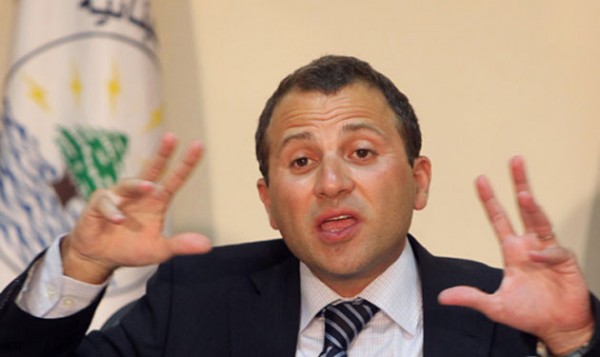 Lebanese politicians on Thursday criticized Foreign Minister Gebran Bassil over a television interview in which he was shown saying that Lebanon did not have an ideological problem with Israel and was not against it having security.
Lebanese politicians on Thursday criticized Foreign Minister Gebran Bassil over a television interview in which he was shown saying that Lebanon did not have an ideological problem with Israel and was not against it having security.
The comments, made to al-Mayadin television channel during a long interview on Tuesday, had just started attracting attention.
Lebanon has no official relations with Israel and tensions have risen this year between Israel and Lebanon’s Hezbollah group. Israel and Hezbollah, the group it describes as the greatest security threat on its border, have fought wars against each other.
A former government minister called on Bassil to resign and a member of parliament also criticized him.
Bassil’s office later said al-Mayadin had distorted his comments through its editing of the interview, without explaining how.
“We are not against Israel living in security,” he was shown saying in a clip that circulated widely in Lebanon on social media.
Israel has targeted Hezbollah positions several times this year in Syria, where the group, which is in Lebanon’s coalition government, is fighting on the Syrian government’s side in the civil war against rebels and Islamic State.
Hezbollah leader Sayyed Hassan Nasrallah said this month that after the group’s success in Syria, where rebels are on the back foot and Islamic State has been militarily defeated, it will focus on its confrontation with Israel.
He called on allied Shi‘ite militia in the region to join Hezbollah in developing a strategy against Israel.
The al-Baqer Brigade, a militia in Syria, posted a picture on its Facebook page on Dec. 26 of what it said was one of its commanders identified as Haj Hamza Abu al-Abbas visiting the Israeli border in southern Lebanon.
An Iraqi militia commander also appeared in a video recently on Lebanon’s border with Israel, in what was seen in Lebanon as a demonstration of the growing clout of Hezbollah and its regional allies.
REUTERS

Leave a Reply
You must be logged in to post a comment.